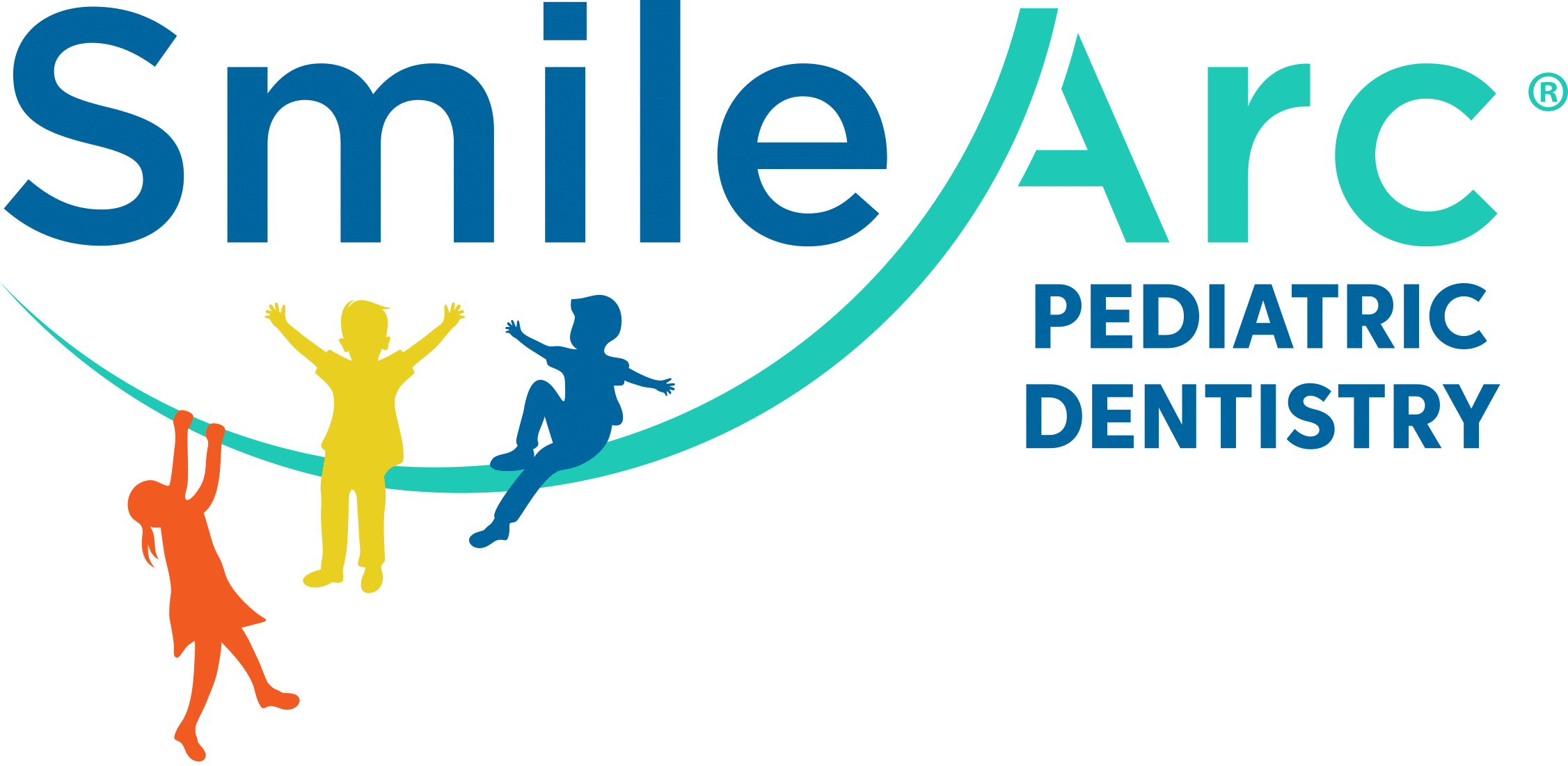What is a Pediatric Dentist?
A Pediatric Dentist is a specialist who is dedicated specifically to the oral health of children from infancy through early adulthood. They have special training to work with a wide variety of dental problems that are common to developing mouths. They are trained and qualified to care for children with special needs, and will work with pediatricians to develop a comprehensive plan that combines oral health with total health care.
What can I expect at my child’s first dental visit?
The first visit to our office is very important and our goal is to make it a memorable first impression. For young children (6 yrs or younger), it is HIGHLY recommended the visit take place in the morning time. Children are more rested and more cooperative as opposed to during their nap time or after daycare or school. We have found this makes a huge difference in your child’s ability to cooperate. We are happy to provide excuse forms for work and school to accommodate this schedule.
Upon entering the office, you will be greeted immediately by our friendly staff. We will take you on a tour of the office, allowing your child to become familiar with their surroundings. We will begin by gaining and establishing trust with your child using behavior management strategies such as “Tell-Show-Do” and “Positive Reinforcement.” Your child will be shown all of the instruments we will be using today and how they work, often demonstrating their use on the child’s hand first.
You will meet Dr. Shafiei, who will perform a comprehensive exam. Your child’s age and comfort level will help determine the length of their appointment. Our goal is to establish the dentist’s office as a safe, friendly place. Depending on your child’s specific needs, we may also take images using our low-dose digital imaging system.
Dr. Shafiei will review all of the findings with you. She will discuss the cavity process, diet, hygiene, thumb-sucking, pacifier use, fluoride exposure and answer any questions you may have. Your involvement in your child’s health care is extremely important to us. You and Dr. Shafiei will work together to create a specific treatment or preventative plan that is best for your family. After the appointment is completed your child will be given a gift bag and a token to pick out a prize from the toy tower!
What are some ways to prepare my child for his/her first dental visit?
The best way to prepare your child for the first visit is to be open and honest they are visiting the dentist. Explain the doctor will count their teeth, take pictures of their teeth and even tickle their teeth. Practice opening and closing their mouth at home and counting. Let them know they will be receiving a “goodie” bag and that kids enjoy their visits to the dentist.
Can my child’s cavities be fixed the same day of my first appointments?
Generally we do not provide treatment immediately after a first exam. The two most important goals of our office is the overall experience and the quality of care. We do our best to make it an easy and even fun experience for our patients. This often requires we see them back on a day when they are fresh and we can schedule sufficient time to give them our undivided attention. However, we respect your time and there are some instances when it maybe possible to receive same day treatment.
Are X-rays safe?
Our office policies regarding x-rays are firmly within the guidelines of the American Academy of Pediatric Dentists (AAPD), the Washington Society of Pediatric Dentists (WSPD), the American Dental Association (ADA), and the American Medical Association (AMA).
We believe in using technology wisely. We use digital x-rays which produce a significantly lower level of radiation and proper protection (thyroid collars) for our patients. Please be assured that dental x-ray radiation is equivalent to the radiation received from the sun and other sources when walking outdoors on a normal day. Digital X-rays can reduce your child’s exposure to radiation by up to 80 percent!
Our x-ray policy is dependent on the child’s risk factors regarding the development of dental caries. After initial examination, we evaluate a child’s risk factors to develop cavities and recommend x-rays accordingly.
Is Fluoride safe?
Fluoride substantially reduces your child’s risk of dental caries. In fact, it is the single most effective method known to prevent cavities. Fluoride is found in our tap water, toothpaste and even in some foods. Fluoride is highly recommended by all major dental associations, and is completely safe when used in the appropriate amounts.
Prevention is one of the most important aspect of pediatric dentistry and oral health. We want to use every safe and reliable means to reduce the chance your children will have cavities. We welcome discussions from concerned parents and only wish to inform you of the benefits of fluoride. The ultimate decision is up to you.
What is the best way to clean my baby’s teeth? What about night feeding?
Frequent nighttime feeding has been associated with dental caries. It is recommended to wipe the child’s mouth after nursing. Bacteria may harbor the tongue and cheeks and can be present even before the teeth erupt.
Sleeping at night with milk or juice is a substantial risk factor for caries. We encourage cup use by the age of 1.
What should I do if my child sucks his/her thumb?
Finger or pacifier sucking has been shown to be nurturing and calming to the developing psyche of a child. Depending on the frequency, intensity and duration of the habit, a child may reshape the facial skeleton or jaws, and move teeth into improper position. Most children stop spontaneously as they get older but positive reinforcement by the time the child is 24-36 months has been shown to be the most successful method of breaking the habit. If your child continues sucking after permanent teeth erupt, or if he sucks aggressively, let us know and we can check to see if any problems may arise from the habit.
Do you offer sedation dentistry?
Nitrous oxide, or laughing gas, is the most frequently used method for easing mild to moderate anxiety in children.
If necessary, Dr. Shafiei can also provide conscious sedation or we work with Pediatric Medical Anesthesiologists to provide deep sedation for children with complicated treatment needs.
What if my child is very scared or traumatized from a previous dental experience?
This is a very common concern that we face often with parents. Our staff and the techniques we use at SmileArc Pediatric Dentistry significantly reduces your child’s anxiety levels. We are a different office, different staff, and have a different approach to ensure your child’s comfort level. Many parents and patients are impressed at our abilities to provide a high level of comfort when treating apprehensive and traumatized children.
Why are baby teeth so important? They will be replaced anyway.
It is important to maintain the health of the primary or baby teeth to establish a good foundation of oral health for your child. Neglected primary or baby teeth frequently lead to problems that can damage the developing permanent (adult) teeth, cause pain, dangerous infections and create a lifetime of dental problems.
Primary baby teeth are essential for proper chewing and eating: they are the first steps in the digestive system. They contribute to speech development, provide space for the permanent teeth to erupt, and encourage normal development of the jaw and surrounding muscles. They also contribute to building good self-esteem.
What can I do to prevent cavities?
For infants, we recommend using a wet washcloth and gently wipe the plaque from your baby’s teeth and gums. Do this after the morning feeding and before your child goes to sleep for the night. Avoid putting your child to bed with a bottle filled with anything other than water once their teeth erupt.
Toddlers and children just starting school need to have an adult help them brush their teeth twice a day and floss daily. Fine motor skills used in brushing don’t develop in children until at least ages 7-8. Your child can be ready to brush their teeth unsupervised if they are able to write in cursive.
Many children respond well to using an electric toothbrush. Ask us about when to start and how to introduce this into your child’s tooth routine.
Be sure your child receives regular dental checkups and cleanings every six months. And of course, always teach and encourage your children to make healthy food choices at meals and for snacks.
What are sealants?
A sealant is a clear or white resin material that is applied to the chewing surfaces (grooves) of the back teeth (premolars and molars). Sealants act as a barrier to food, plaque and acid to protect the decay-prone groove areas of the teeth on the chewing surfaces. Most cavities are found in molars. Sealants have been found to prevent cavities when applied early, usually just after the teeth have erupted (around age six or seven). Sealants do not protect between teeth, so it’s important to continue to brush and floss daily when a sealant is applied.

